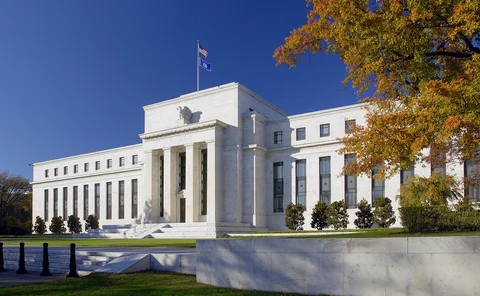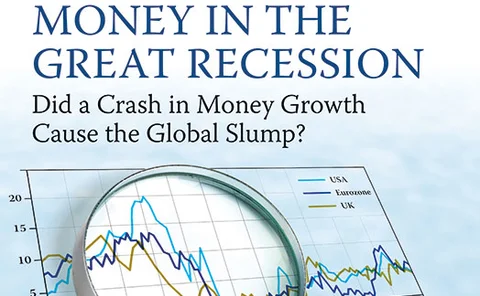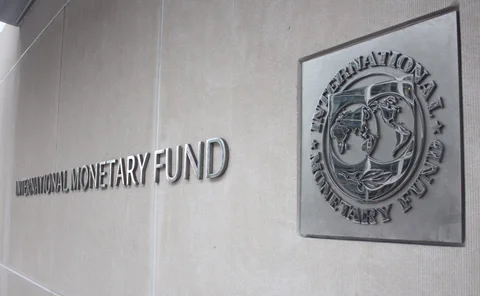Recession
Canada effecting a cautious normalisation – deputy governor
Uncertainties related to trade, high debt levels and slower growth may delay new rate hikes
US real GDP growth accelerating in 2018 – Atlanta Fed
The real-time index GDPNow forecasts an annualised expansion of 4% in the first quarter
A dangerous unknown: interest rate risk in the financial system
Urgent action is needed to tackle the little-understood build-up of interest rate risk in the global financial system; macro-pru tools still inadequate to tackle the issue
Transparency: Central Bank of Ireland
The Irish central bank has made great progress in communicating in a candid and open manner with the people it serves
Nigerian central bank acts without MPC after quorum failure
Emefiele holds monetary policy steady, and hails continued fall in inflation
Book notes: Money in the Great Recession, by Tim Congdon
A stimulating collection of papers on the monetarist theory that had central bankers in late 2008 focused on boosting the quantity of broad money “the Great Recession would not have happened”
Most UK banks withstand ‘disorderly Brexit’ stress tests – BoE
Majority of banks unfazed by tests “more severe than the financial crisis”, but a few struggle with lingering issues
European recovery may be stronger than previously thought
If the great recession and sovereign debt crisis are considered a single shock, “recovery is in line with – or better than – historical patterns”
Constâncio discusses possible changes to new ECB model
Modelling of aggregate consumption and expectations must improve - ECB vice-president
San Francisco Fed research explores evolution of job-matching efficiency
As people out of the labour force are included, the volatility of the job-to-job transition rate falls, economists find
Ecuador’s central bank forecasts sustained recovery
Nation experienced two years of recession on falling oil prices, but stable commodity prices, fiscal austerity and stronger trade links with Europe expected to support growth
Spanish paper looks at business cycle’s effects on industry
Industries are not moving uniformly to cohesion with the business cycle, says paper
Sarb’s Kahn: current conditions ‘do not bode well’ for economy
Kganyago’s advisor says political uncertainty is likely to continue throughout 2017 with no clear sign business or consumer confidence will improve
Build-up of public debt causes longer recessions for EMs – paper
“Less supportive” fiscal policy makes emerging markets more prone to problems associated with accumulation of public debt; authors highlight the importance of fiscal buffers
Spanish paper proposes new measures for economic recoveries
Researchers apply new tests to data on US post-war expansions
ECB bulletin emphasises importance of monitoring uncertainty
Increases in uncertainty adversely impact the economy, research says, encouraging policymakers to introduce measures to mitigate its impact
Factors behind weak growth in advanced economies do not apply to South Africa – Sarb deputy
Mminele says 2008 recession did not create savings glut in South Africa, suggesting other factors such as a shortage of skills are responsible
Fiscal stimulus works even in debt-driven recessions – Cleveland Fed paper
Study uses defence spending to estimate fiscal multiplier, finding it is higher in areas with larger debt burdens, contrary to the fears of some economists
ECB paper explores public and private employment link
Research contradicts literature that claims an increase in public employment crowds out private employment, at least in recessions
Summers: Fed is not ready for next crisis
Secular stagnation has left Federal Reserve short on firepower as the next recession looms, economist says; urges greater willingness to risk inflation overshoot and action by fiscal authorities
Dutch paper explores price level dispersion
‘Idiosyncratic shocks’ have greater impact on price level dispersion within the eurozone than in the US, authors say
Oil prices are key drivers of metal prices, Colombian paper suggests
Research utilising ‘frequency-domain approach’ finds oil prices may be a key drivers of metal prices; consider implications for commodity-rich nations
Countries under credit stress should ‘front-load’ fiscal consolidation, says ECB paper
Front-loading will bring confidence effects, the working paper suggests
Irish central bank paper finds high cost to hasty austerity
Economists find most of the costs of fiscal consolidation from 2011-13 could have been avoided if policy-makers waited until the zero lower bound was no longer a constraint






















